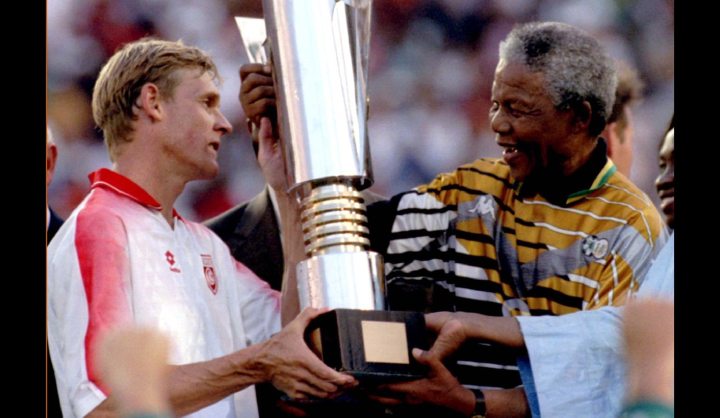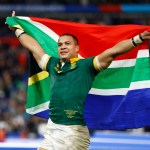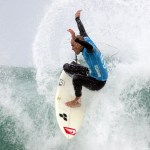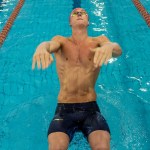Sport
Madiba Magic: Kryptonite for SA’s sporting opponents

It’s difficult to imagine how anyone could really be angry with Nelson Mandela, a man who epitomised forgiveness and reconciliation, but South Africa’s sporting opponents, especially in football and rugby, in the 1990s perhaps had good reason to feel a bit miffed whenever the iconic statesman made an appearance at a game. By KEN BORLAND.
That’s because Mandela and his “Madiba Magic” made South African sporting teams almost invincible, such was the inspirational effect he had on the sides he interacted with. Sport in this country owes the first democratically-elected president a massive amount because he chose it as one of his key tools for nation-building.
For starters, it was Mandela’s permission that had enabled South African teams to return to international action well before the first democratic elections in 1994.
Bafana Bafana were one of the first teams to feel the Madiba Magic, most famously when they won the 1996 African Nations Cup on home soil.
Neil Tovey was the captain and he was just grateful that they were playing international football at all.
“We wouldn’t even have been doing what we were doing if it wasn’t for him? He brought us back into international sport; how could we not run and play our hearts out for him? From the 80s until 1990, you could only aspire to the highest level for your club, but Madiba gave us so much opportunity,” Tovey told The Daily Maverick.
And Bafana did indeed run and play their hearts out for Mandela, with goalkeeper Andre Arendse under no illusions as to why they were so inspired.
“As a footballer and in the Bafana Bafana set-up, we were part of an era that turned this country right around – 1995/96 was a massive time for sport in South Africa and it was largely due to his support.
“During the African Nations Cup, Madiba literally used to come to our team hotel on the morning of every game and tell us how much we meant to him and to the country. That would put us 2-0 up before every game. He was the unmistakable driving force behind our team, literally, and we regarded him as a team-mate, so when he celebrated on the field with us, that was the cherry on top.
“We weren’t the best team, not by a long shot, but there was this other force behind us,” Arendse said.
The rugby Springboks had had their own moment of destiny the previous year as they won the Rugby World Cup with a nail-biting 15-12 win over the heavily-fancied, Jonah Lomu-inspired All Blacks. It felt like divine intervention for many, such was the galvanising effect of that triumph on what was still a highly troubled society.
But over a period of time, it became clear that whenever Madiba, who had persuaded the African National Congress to allow rugby to keep the Springbok emblem, reached out to the beloved game of his former oppressors, the effect was miraculous.
Former Springbok captain and 2007 World Cup winner Victor Matfield has no doubts about the effects of Madiba Magic:
“I must say that I was still in high school when Madiba was released and I can still remember worrying what would happen to the country! But he showed everyone how to forgive, get on with our lives and work together. He had a great vision of uniting the country and he saw sport as a medium for getting us together. Because we all supported one team, sport was a very important instrument.
“I was very lucky to meet Madiba three times and it was an unbelievable experience every time. The Springboks never lost a game after meeting him. In Paris for the 2007 World Cup, at the beginning of the tournament we went to say hello to him at his hotel and clearly the Madiba Magic worked!
“But Madiba is inspiring all over the world and is probably one of the most inspirational people to have ever lived. We were very lucky to have him in our country to show us that the dream of a united country can be achieved,” Matfield said.
Even current Springbok captain Jean de Villiers feels his influence still inspires the present wearers of the Green and Gold:
“Obviously Madiba was a great inspiration to all of us and I was very privileged to meet him a couple of times. He seemed to have the magic touch, we always seemed to perform after meeting him. He was someone I really looked up to since I met him for the first time on my debut tour, before we left in 2005,” De Villiers said.
Francois Pienaar, the captain of the 1995 World Cup winners and the other man in a trophy-handover photograph that became so iconic it inspired a Hollywood movie, has understandably been feeling a little overwhelmed.
He asked to be excused from an interview with The Daily Maverick, but did send the following, heartfelt message to honour someone who has become inextricably bound with his own story of success.
“Madiba had a profound influence on my life and my relationship with him is very personal. Eighteen years ago I had the incredible privilege of sharing a stage with him, but what is most special is that our relationship grew after the World Cup. It is a time of deep reflection,” Pienaar said.
While Mandela undoubtedly inspired national teams to top-class performances on sporting stages around the world, he also had a profound effect on the fans of those teams.
A ceaseless champion of reconciliation and forgiveness, he made sportsmen, who are often so utterly focused on their on-field goals that they become insular, aware of what was going on in society around them.
Mark Andrews was just a 23-year-old when he played eighthman in the 1995 World Cup final, just at the start of a then-record 77-Test career, that saw him feature mostly as a lock.
“Before 1995, we knew we represented the whites and the coloureds who watched rugby, but we also knew we didn’t have the support of the whole country. But when Nelson Mandela stood up and embraced the Springbok I felt, ‘hold on, we represent all the people now’. When he wore Francois Pienaar’s jersey, that was the first time I really felt that,” Andrews said.
Bryan Habana is a more recent Springbok legend who has a wider perspective on what Mandela did through rugby.
“Madiba is one of the most iconic people, not just in South Africa but globally. He was a man of absolute inspiration, to carry on like he did after his imprisonment, to let go of all that hurt and just forgive. The whole ANC wanted to get rid of the Springbok, but he understood the importance of that symbol and he allowed us to believe and have hope.
“And he was an amazing person, I had a couple of opportunities to meet him and we chatted on the phone too when I wished him happy birthday. He was one of the humblest people and the way he portrayed himself in public was so amazing – always smiling, hugging people, having photos taken and conversations.
“He put South Africa on the map especially in terms of sport, which he said had an amazing ability to unite the nation. I feel he united South Africa and I’m unbelievably proud of our heritage, we live in a very unique country. And I’m always thankful for what he did for me personally,” Habana said.
Engaging, humble and humorous – these are the traits that stand out for sportsmen who met Mandela.
And the former president did not just save his appearances for the high-profile sports of football and rugby.
The Comrades Marathon was one of the events he attended and former winner Nic Bester remembers Madiba lighting up the presentation ceremony.
“I met Nelson Mandela at the podium of Comrades in either 1996 or 97 when I finished second and he was always very approachable when he was dishing out the prizes. He was very humanistic and even though I finished second, he said I must please give him my training programme because he wanted to run Comrades next year!
“He was wonderful for sport, but not just sport, for everyone in the country. And obviously in the 1995 World Cup he was able to bring everyone together,” Bester recalls.
Our cricketers also have wonderful memories of Madiba Magic.
Allan Donald became one of the all-time great fast bowlers and is the Proteas’ current bowling coach, but when he met Mandela, he was a young man from the Free State who was just starting to make a name for himself on the international stage.
“Our first meeting was the thing that stuck with me: He met us at the Wanderers when we were playing against India and he stopped to talk to most of the players. And when he came to me, he said ‘how’s Bloemfontein, how’s the Free State treating you?’ Now that really was quite immense, it blew me away and it showed that he really knew about the team.
“I met him at Newlands too and he was very inspirational. It was a very special moment meeting him. In my bar, with my other memorabilia, is a photo of me receiving the President’s Sports Award from him and that has pride of place. He was just a very special person and meeting him provided great memories,” Donald said.
As a former prison warder, South African pace bowler Charl Langeveldt would have a fair inkling of what Mandela had to endure during his 27 years of incarceration.
“For me, personally, Nelson Mandela changed the whole country and the system. I played in the Sacos [non-racial] era too and I looked up to him, it meant a lot to me that he changed that cricket was previously thought of as a white sport. He went on with his life like nothing happened after 27 years in prison. He was a great leader and what a great person. He was inspirational, when I trained early in the morning, I thought of him and used that as fuel,” Langeveldt says.
Tovey remembers fondly how Madiba had taken the time to speak to each and every one of the Bafana Bafana squad during their meetings.
“He was an unbelievable person, so humble and whenever he walked into our room, he would greet each and every one of the people in there. Nobody was too small for him,” Tovey recalls.
For us that remain, there is the responsibility to ensure that sport remains the powerful nation-building, society-enhancing tool that Mandela wielded so deftly. But as with most other spheres of life in South Africa, too many people in powerful positions lack the self-sacrificing leadership skills of the great Father of the Nation. DM
Photo: South African President Nelson Mandela (R) gives captain Neil Tovey the African Cup of Nations after South Africa won the final February 3. Sojuth Africa defeated Tunisia 2-0. February 3, 1996. (Reuters)



















 Become an Insider
Become an Insider